CALIFICACIÓN DE IMDb
7.2/10
6.7 k
TU CALIFICACIÓN
El mago aficionado Shirou Emiya se ve envuelto en una lucha entre magos que utilizan héroes mitológicos.El mago aficionado Shirou Emiya se ve envuelto en una lucha entre magos que utilizan héroes mitológicos.El mago aficionado Shirou Emiya se ve envuelto en una lucha entre magos que utilizan héroes mitológicos.
Explorar episodios
Argumento
¿Sabías que…?
- TriviaGilgamesh's constant self-glorifying refers to the actual Epic of Gilgamesh, which dedicates entire verses every few chapters to praising its hero.
- ConexionesFollowed by Gekijôban Feito/sutei naito: Anrimiteddo Bureido Wâkusu (2010)
Opinión destacada
Having watched "Unlimited Bladeworks," first, this is just a paradigm of that; they are both the same story, with some different outcomes. Not sure why.
Once again, as an author of many sci-fi & fantasy works, I am constrained to point out the severe problems for writers that create stories with magic in them. Put most simply, they tend to use too much of it and let it be unlimited; and nothing is unlimited. "Fate/Stay Night" has this problem. The overall storyline is a decent one, that of seven Masters and Servants pursuing the Holy Grail (as nebulous a thing as it is); that gives you an adventure where all kinds of things can happen. The reasons for PURSUING the Holy Grail, however, are pretty thin, and ofttimes ridiculous, but that's the story, and we can leave it at that.
There are many characters in this series and many things happen as they square off against one another. Magic itself can be an interesting device, but when the creators let it do anything at all, that is, let it be unlimited, then you've trashed your story, at least a little. And the more you use this infinite magic with no bounds or rules, the more of your tale you trash. Why - because there is no problem that is so difficult that a little more magic can't get rid of it, and villains become more menacing by giving them more magic than the heroes - and for no particular reason other than to further the good-guy-bad-guy story. It's too apparent, and dull. One finds him or herself asking why the author didn't use it in one place with one character when it has been used liberally with another: arbitrary by the author, rather than an intrinsic part of the characters. Magic is not infinite - nothing is - and we should know what the rules which govern it are, so we can know what the characters can and cannot do; then you'd have a real story, because there is no easy way out of a difficult situation just by creating more new magic that wasn't there before. The author can't just whip it up to solve a problem; he has to develop some clever story to keep the drama going. "Fate/Stay Night" suffers from this often; the creators rely on too much magic in too many places to create story and drama, rather than employing imagination. They give more magic to one character and take it away from another character, and there is no reason for it except to artificially create plot. Add to that, there is way too much talking by characters, which in the end doesn't matter, because the creators will only make more magic later to destroy whatever it is they said or planned. One more irritating thing: evil characters are way too pointlessly evil and enjoy psychotically torturing people way too much. Having one character like that you might buy, but many is simply tiring and ridiculous.
Visually, the battle scenes are good, but occasionally too long, developing more and more magic forces to carry the action and drama, when it is the characters and their motivations and skills which should be driving those things. The art & graphics are very good for this type of anime, colorful and interesting, so that you don't feel so much like you're watching a cartoon. The animation itself is typical for this type of thing, certainly not awesome, but decent enough to carry the story without problems. Overall, less magic, fewer psychotic villains, more character development would have made this a far better work.
Once again, as an author of many sci-fi & fantasy works, I am constrained to point out the severe problems for writers that create stories with magic in them. Put most simply, they tend to use too much of it and let it be unlimited; and nothing is unlimited. "Fate/Stay Night" has this problem. The overall storyline is a decent one, that of seven Masters and Servants pursuing the Holy Grail (as nebulous a thing as it is); that gives you an adventure where all kinds of things can happen. The reasons for PURSUING the Holy Grail, however, are pretty thin, and ofttimes ridiculous, but that's the story, and we can leave it at that.
There are many characters in this series and many things happen as they square off against one another. Magic itself can be an interesting device, but when the creators let it do anything at all, that is, let it be unlimited, then you've trashed your story, at least a little. And the more you use this infinite magic with no bounds or rules, the more of your tale you trash. Why - because there is no problem that is so difficult that a little more magic can't get rid of it, and villains become more menacing by giving them more magic than the heroes - and for no particular reason other than to further the good-guy-bad-guy story. It's too apparent, and dull. One finds him or herself asking why the author didn't use it in one place with one character when it has been used liberally with another: arbitrary by the author, rather than an intrinsic part of the characters. Magic is not infinite - nothing is - and we should know what the rules which govern it are, so we can know what the characters can and cannot do; then you'd have a real story, because there is no easy way out of a difficult situation just by creating more new magic that wasn't there before. The author can't just whip it up to solve a problem; he has to develop some clever story to keep the drama going. "Fate/Stay Night" suffers from this often; the creators rely on too much magic in too many places to create story and drama, rather than employing imagination. They give more magic to one character and take it away from another character, and there is no reason for it except to artificially create plot. Add to that, there is way too much talking by characters, which in the end doesn't matter, because the creators will only make more magic later to destroy whatever it is they said or planned. One more irritating thing: evil characters are way too pointlessly evil and enjoy psychotically torturing people way too much. Having one character like that you might buy, but many is simply tiring and ridiculous.
Visually, the battle scenes are good, but occasionally too long, developing more and more magic forces to carry the action and drama, when it is the characters and their motivations and skills which should be driving those things. The art & graphics are very good for this type of anime, colorful and interesting, so that you don't feel so much like you're watching a cartoon. The animation itself is typical for this type of thing, certainly not awesome, but decent enough to carry the story without problems. Overall, less magic, fewer psychotic villains, more character development would have made this a far better work.
- ajrcvr
- 6 jul 2016
- Enlace permanente
Selecciones populares
Inicia sesión para calificar y agrega a la lista de videos para obtener recomendaciones personalizadas
- How many seasons does Fate/stay night have?Con tecnología de Alexa
Detalles
- Tiempo de ejecución23 minutos
- Color
- Relación de aspecto
- 1.78 : 1
Contribuir a esta página
Sugiere una edición o agrega el contenido que falta

Principales brechas de datos
What is the Canadian French language plot outline for Fate/stay night (2006)?
Responda


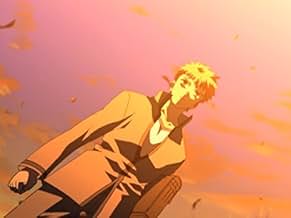
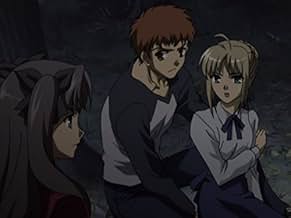
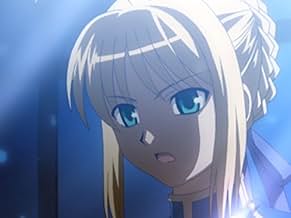
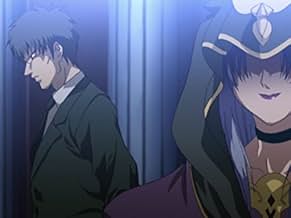
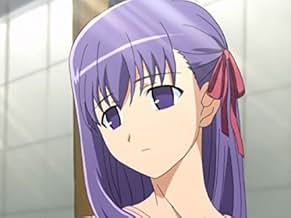
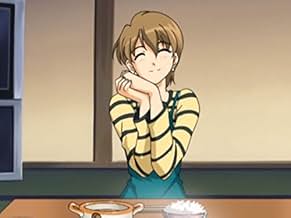
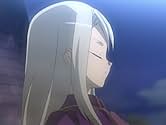


















![Fate/stay night [Heaven's Feel] I. presage flower](https://m.media-amazon.com/images/M/MV5BMzFjODA2Y2YtN2RiOS00OWZmLTk5NzEtOTgyZDlmYzFjZWU5XkEyXkFqcGc@._V1_QL75_UY207_CR3)









